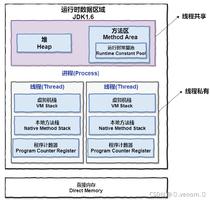ts的面向对象,用接口实现类后怎么统一调用?
上代码
type mapType = stringinterface ILayer {
readonly type: "pointIcon" | "point" | "pointSpiIcon"
}
interface IDrawConstructor {
map: mapType
layer: ILayer
addPoint: (map: mapType, layer: ILayer) => void
}
interface IDrawPointConstructor {
map: mapType
layer: ILayer
}
// 实现接口
class DrawIconPoint implements IDrawConstructor {
public layer: ILayer;
public map: mapType;
constructor(map: mapType, layer: ILayer) {
super()
this.map = map
this.layer = layer
}
addPoint(map: mapType, layer: ILayer): void {
console.log('iconPoint')
}
}
// 实现接口
class DrawSpiritIconPoint implements IDrawConstructor {
public layer: ILayer;
public map: mapType;
constructor(map: mapType, layer: ILayer) {
super()
this.map = map
this.layer = layer
}
addPoint(map: mapType, layer: ILayer): void {
console.log('iconSpiritPoint')
}
}
// 导出统一类
export class DrawPoint implements IDrawPointConstructor {
public map: mapType
public layer: ILayer
constructor(map: mapType, layer: ILayer) {
this.map = map
this.layer = layer
layer.type === 'pointIcon' ?
new DrawIconPoint(map, layer) : new DrawSpiritIconPoint(map, layer)
}
}
现在想的是 只用 new 一个类 DrawPoint,然后传入参数,就能自动执行里面的实现类
现在是通过 if 判断来实现,考虑到后续会有 if 判断的条件增加,要手动来这里修改if的条件,有没有什么更好的实现方式
回答:
- 没必要写这么多
interface和implements,直接在类上定义属性和类型即可,TypeScript 能够推断出你的类上到底有什么 - 通过修改构造函数的返回值,确实可以做到
new A()但是返回一个B的实例,但是为什么要用这种 hack 的方式?直接一个函数不就行了? - 如果不想用
if else,那么就用模式匹配,switch,或者用对象,你的判断条件是一个字符串,可以以判断条件为键,回调函数为值构建一个对象,比如:
const obj = { pointIcon(map, layer) {
return new new DrawIconPoint(map, layer)
},
pointSpiIcon(map, layer) {
new DrawSpiritIconPoint(map, layer)
}
}
obj[layer.type](map, layer)
以上是 ts的面向对象,用接口实现类后怎么统一调用? 的全部内容, 来源链接: utcz.com/p/933045.html








